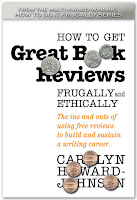Prisms Particles, and Refractions
by Carol Smallwood
Finishing Line Press
2017
$18.99 [paper] I
ISBN: 978-1635342338
85 pp.
Review by Judith Skillman Originally for Scarlett Leaf Review
Carol Smallwood’s new collection, Prisms Particles, and Refractions, is at once playful and serious. Her work in this volume ranges from extremely concise poems such as “On Days of Slow Rain” where the speaker becomes “a child again / longing to read / darkened tree bark/like Braille” (53) to the four-page oeuvre written in journal form, “A Late Summer Diary.” The fact that these two poems are neighbors makes the transition between short and long more emphatic, and creates echoes and resonances.
As Smallwood deftly moves through a variety of content and subject matter, the reader gets a sense of an unpredictable world, despite the anchor of a wealth of scientific evidence to the contrary. Facts are posited, yet not accepted as givens. For instance, in “We See,” the persona examines exactly how we do see and absorb light, and questions knowledge imparted during college years. Here, the title becomes the first line: “We See / with rods and cones I learned / in college—it may not be true/today…” (13). As this poem deepens, mirrors, faces, and sacrifice come into play, as well as the automatic adjustment made by the retina from upside down to right side up. This piece is emblematic of Smallwood’s gift—focused examinations that lead to “aha” moments for both writer and reader.
The poems in this book have been published in many journals. Clearly the art of poetry is one Ms. Smallwood has lived and learned. Her forms range from cinquain to villanelle to sestina; she switches from formal to free verse with ease. The myriad references and allusions in these poems draw from philosophy, psychology, physics, metaphysics, history, and literature.
“A Prufrock Measurement” (74) employs playfulness and formal rhyme in order to merge two vastly different subjects—contemporary fast food proliferation with the persona of Eliot’s Prufrock. This willingness to draw from disparate sources creates a prismatic effect: varied and brilliant. In the introduction, Smallwood states her intention to present poems “aimed at capturing…aspects of light…and light as metaphor.” It is this reviewer’s sense that she has succeeded.
MORE ABOUT THE REVIEWER
Judith Skillman’s recent book is Kafka’s Shadow, Deerbrook Editions. Her work has appeared in LitMag, Shenandoah, Zyzzyva, FIELD, and elsewhere. Awards include an Eric Mathieu King Fund grant from the Academy of American Poets. She is a faculty member at the Richard Hugo House in Seattle, Washington. Visit www.judithskillman.com. She also review for Scarlet Leaf Review, https://www.scarletleafreview.com
MORE ABOUT THIS BLOG
 The New Book Review is blogged by Carolyn Howard-Johnson, author of the multi award-winning HowToDoItFrugally series of books for writers. Of particular interest to readers of this blog is her most recent How to Get Great Book Reviews Frugally and Ethically (http://bit.ly/GreatBkReviews ) that covers 325 jam-packed pages covering everithing from Amazon vine to writing reviews for profit and promotion.
The New Book Review is blogged by Carolyn Howard-Johnson, author of the multi award-winning HowToDoItFrugally series of books for writers. Of particular interest to readers of this blog is her most recent How to Get Great Book Reviews Frugally and Ethically (http://bit.ly/GreatBkReviews ) that covers 325 jam-packed pages covering everithing from Amazon vine to writing reviews for profit and promotion. This blog is a free service offered to those who want to encourage the reading of books they love. That includes authors who want to share their favorite reviews, reviewers who'd like to see their reviews get more exposure, and readers who want to shout out praise of books they've read. Please see submission guidelines on the left of this page. Reviews and essays are indexed by genre, reviewer names, and review sites. Writers will find the search engine handy for gleaning the names of small publishers. Find other writer-related blogs at Sharing with Writers and The Frugal, Smart and Tuned-In Editor.

